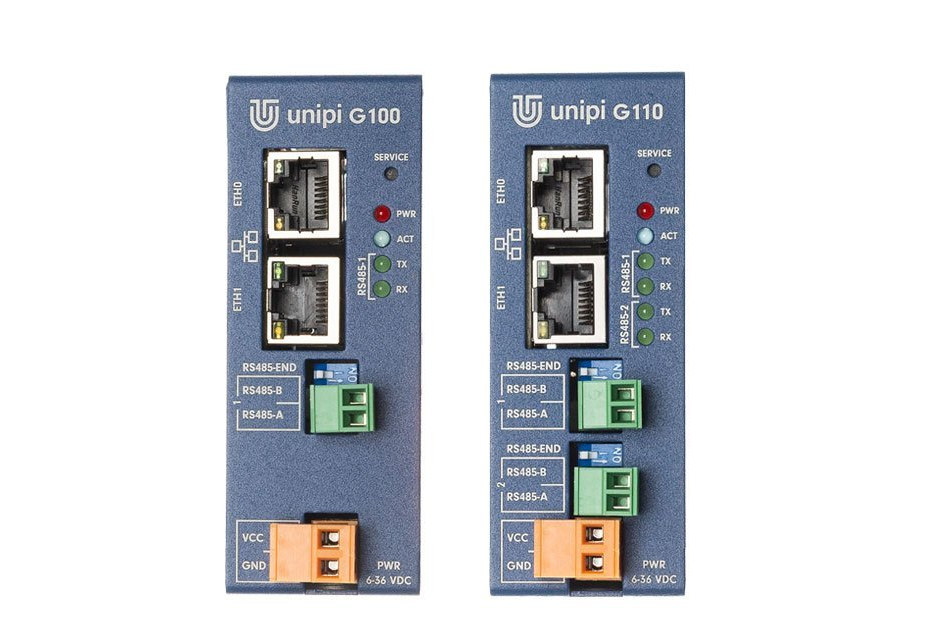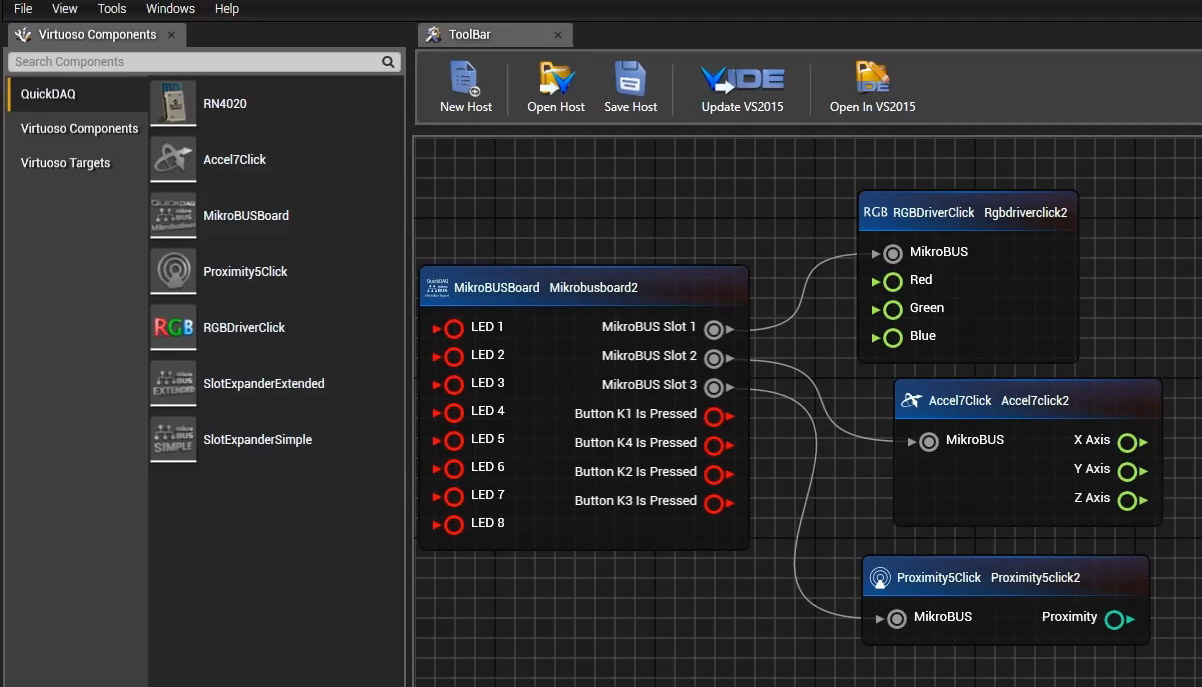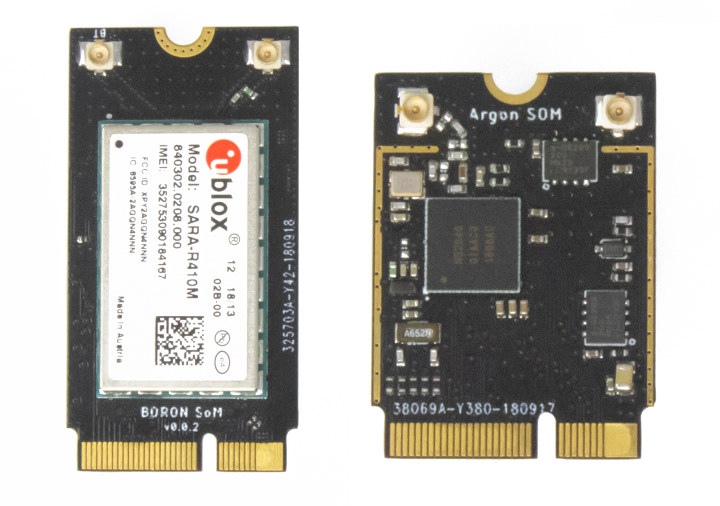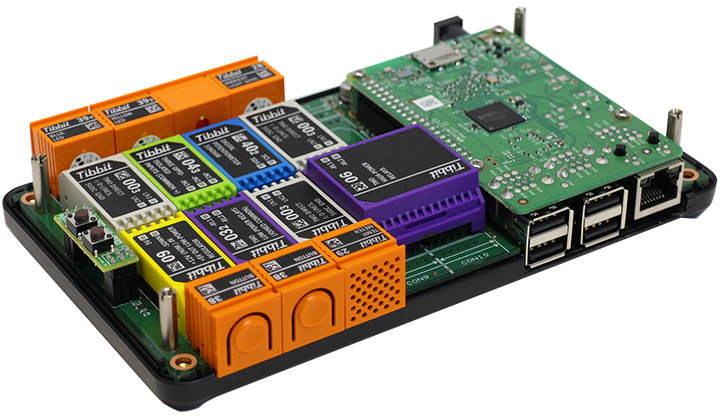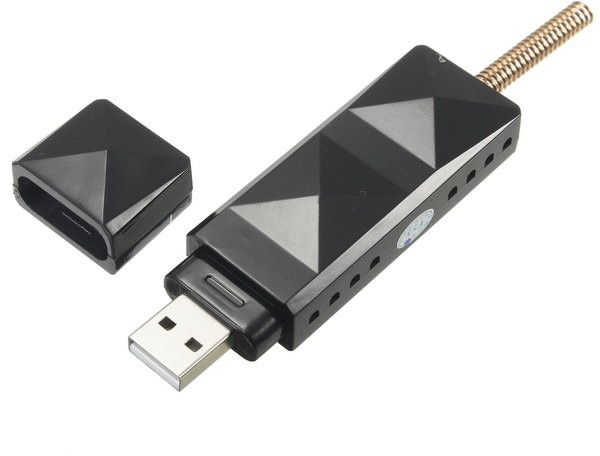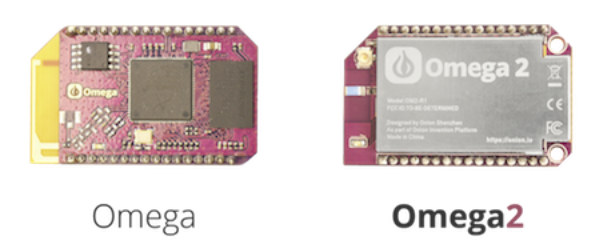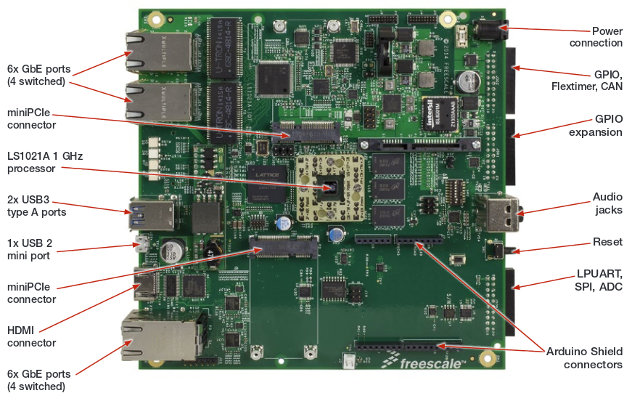Based in the Czech Republic, UniPi Technology design and manufacture programmable logic controllers, gateways, sensors and systems for smart homes, building management systems, industry and automation projects. Their latest product is UniPi Gate G100/G110 Linux IoT gateway with Ethernet and RS485 interfaces. When the company contacted CNX Software about the gateway, they told us the system was based on a quad-core Cortex-A53 processor clocked at 600 MHz. Since we are not aware of such SoC, we asked, and UniPi told us it was Rockchip RK3328. That processor is normally clocked at 1.5 GHz, and it turns out the company purposely underclocked the processor to 600 MHz to extend the temperature range and reduce the heat emitted by the CPU. UniPi Gate G100 & G110 specifications: SoC – Rockchip RK3328 quad-core Cortex-A53 processor @ 600 MHz System Memory – 512MB RAM Storage – 16GB eMMC flash, MicroSD card slot Networking – […]
QuickDAQ.mikroBUS Development Board Leverages Visual Programming and MikroE Click Boards (Crowdfunding)
mikroBUS is a socket interface that allows you to connect MikroElektronik (MikroE) Click add-on boards that can be buttons, sensors, a servo controller, a wireless module, and practically anything you may think of since there are over 700 Click boards to choose from. We already covered several SBC with MikroBUS sockets starting with SolidRun HummingBoard Gate board that offered a single socket for 150+ Click boards at the time (2015). Other boards include Azure Sphere MT3620 with two MikroBUS sockets and MikroElektronika’s own Flip & Click board designed to take one Arduino shield and up to four Click boards. Another upcoming option is QuickDAQ.mikroBUS developer by EmbeddeTech in collaboration with MikroElektronika, powered by a Microchip PIC32 MCU, offering three MikroBUS sockets, and designed to work with “Virtuoso Low-Code Environment” that allows people to program the board using NodeRed-like visual programming and generate a Visual Studio project with code from the […]
Particle Unveils Mesh SoMs and IoT Developer Tools
Earlier this year, Particle unveiled three IoT development boards based on nRF52840 Bluetooth 5/802.15.4 WiSoC and supporting Particle Mesh, which interestingly is not based on Bluetooth Mesh or even Bluetooth, and instead relies on Thread specification/OpenThread implementation, and the 802.15.4 radio of the chip with Bluetooth only used for the initial setup stage. Particle announced the shipping date (October 2018 or… this month) for their Mesh boards pre-ordered in February, as well as three new products in a recent blog post. One of the products is a family of system-on-modules compatible with Particle Mesh, while the other two are related IoT developer tools. Particle Mesh SOMs The Particle Mesh SOMs will have similar names and features as corresponding Particle mesh developers kits such as Boron (NB-IoT / eMTC + BLE + Mesh) and Argon (ESP32 WiFi, BLE + Mesh), but with an edge connector and designed as enterprise-grade, production-scale version […]
Tibbo-Pi is a Wirefree Modular IoT Prototyping Platform for Raspberry Pi Board
Tibbo Project System (TPS) is a modular Linux IoT prototyping platform based on the same Texas Instruments Sitara AM335x processor used in BeagleBone Black or a PocketBeagle boards, and comprised of a main board, Tibbit blocks to add features as needed, and an enclosure. I’ve now been informed the company will be at Computex 2018 to showcase their new products including Tibbo-Pi, following the same concept as Tibbo Project System, but leveraging Raspberry Pi 3 board and ecosystem instead. While an English brochure is said to be available, all information in the webpage listed in the photo above is in Japanese. But basically, Tibbo-Pi is said to be an IoT edge device for industrial use, made for build a prototypes, or small scale production system thanks to a choice a 60 different Tibbit Blocks sensor and I/O module blocks, all wire free. Programming of the system is typically done with with […]
This $8 USB Transceiver Can Add 433 MHz Device Support to your Home Automation Gateway
With the advent of WiFi and Bluetooth IoT, 433 MHz devices are becoming less popular but are still used for doorbells, motions sensors, windows/door sensors, etc… If you have such devices at home, one way to integrate those into your home automation system is to use an ESP8266 WiFi to 433 Mhz bridge between your gateway and 433 MHz capable products. However, you don’t even need the middleman if you use a USB 433 MHz transceiver connected directly to the gateway. Nathan Chantrell found such USB dongle on Banggood for about $8, and managed to make it work with his Debian Gateway using Node-RED. 433 MHz USB dongle and features: Connectivity 433 MHz transceiver Range – up to 30 to 100 meters (Line of Sight) Tx and Rx for PT2262, PT2260, PT2264, PT2240, EV1527, HS2303-PT codes Can transmit multiple signals independently Control interface – Serial over USB @ 9600 bps […]
Marvin is a Plug and Play, Arduino Compatible, LoRa USB IoT Development Board (Crowdfunding)
LoRa appears to be one of the most popular LPWAN standards so far, with hobbyist development boards such as LoPy or LoRaONE, and we’ll soon have at least one more choice thanks to Marvin, a LoRa development board with a full size USB port. Marvin board specifications: MCU – Atmel/Microchip ATmega32u AVR MCU (same as Arduino Leonardo board) Connectivity – LoRa via Microchip RN2483; Supports both 868 MHz and 433 MHz frequency bands, on-board antenna USB – 1x USB, 1x micro USB port for power and programming Debugging – USB, and ISP header Expansion – 5x Grove connectors Power Supply – 5V via USB port Dimensions – N/A, but similar to USB flash drive The board can be programmed with the Arduino IDE, and they mention IBM Bluemix platform, and Node-RED, but overall details about documentation and software are scarce right now. One of the advantage of this form factor is […]
Onion Omega2 is a $5 Linux WiFi IoT Board (Crowdfunding)
Onion Omega board was first introduced in 2015. The tiny OpenWrt Linux board featured an Atheros AR9331 processor with GPIO headers, and various baseboards and add-ons. The company has now launched a Kickstarter campaign for the second versions – Omega2 & Omega2 Plus – with a faster processor @ 580 MHz, compatible with docks and add-ons boards used for Omega, and a much lower price with $5 for the Omega2, and $9 for Omega2 Plus with more storage and memory. Omega2 & Omega2 Plus specifications: WiSoC – 580 MHz processor, possibly Mediatek MT7688 MIPS processor used in LinkIt Smart 7688 System Memory Omega2 – 64MB Omega2 Plus – 128MB Storage Omage2 – 16MB flash Omega 2 Plus – 32MB flash + micro SD slot Connectivity Built-in – 802.11 b/g/n WiFi with on-board and external antenna support Via add-on boards – Bluetooth 4.0 LE, GPS, and 2G/3G Expansion – 15x GPIO, […]
Freescale LS1021A-IOT IoT Gateway Reference Design Powered by QorIQ LS1021A Dual ARM Cortex A7 SoC
Freescale has just launched a an IoT gateway reference design powered by their QorIQ LS1021A communication processors running Linux/OpenWRT, designed in partnership with TechNexion, and targeting various IoT applications such as building/home management, smart cities, networked industrial services, etc… Beside the dual core Cortex A7 QoirIQ processor, the board features six Gigabit Ethernet ports, two USB 3.0 ports, a SATA 3 port, two mini PCIe connector, an LVDS interface, HDMI output, Arduino UNO compatible headers, and various others expansions headers. LS1021A-IOT IoT gateway Specifications: SoC – Freescale QorIQ LS1021A dual core Cortex A7 communication processor @ 1 GHz (5,000 coremarks) MCU – Freescale Kinetis K20 Cortex M micro-controller System Memory – 1 GB DDR3L Storage – 1 Gb QSPI NOR Flash, SDHC slot (up to 32 GB) populated with a 4GB SD card, 1x mSATA 3 slot Connectivity – 6x Gigabit ports via SGMII (Serial Gigabit Media Independent Interface) and […]


